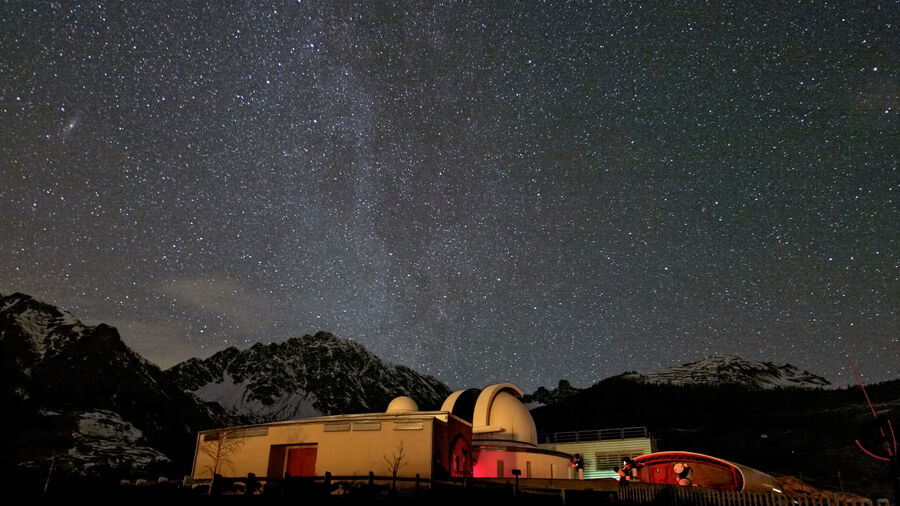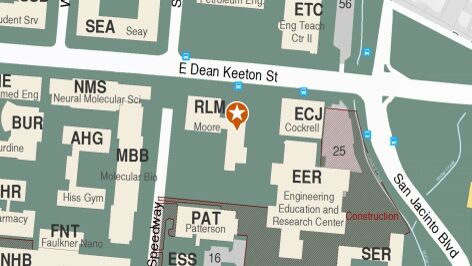Astronomy
Major in the College of Natural Sciences
The undergraduate program in the Department of Astronomy provides exciting opportunities for students with an interest in astronomy, physics, mathematics, or related sciences.
Students can learn from, and conduct research with some of the world's top astronomers who are investigating the births of the first stars and galaxies, deciphering how proto-galaxies evolved into present-day systems like our own Milky Way, studying planets in extrasolar systems, and probing the nature of dark matter and dark energy. Students use the McDonald Observatory in West Texas, multi-wavelength telescopes all over the world, and data from NASA's space-based facilities, including the Spitzer Infrared Satellite, the Hubble Space Telescope, and Swift Gamma Ray Burst Explorer. Astronomy majors have career opportunities in education, government agencies, business, and private industries. Visit the American Astronomical Society site for additional information on careers related to Astronomy.
Freshman and External Transfer Admission
ShowProspective University of Texas at Austin students should visit UT Admissions to learn about the application process and how to declare a major.
Internal Transfer Requirements
ShowStep 1: Internal transfer students must apply to the College of Natural Sciences prior to completing 60 hours or four long semesters at UT. Applications are due to the College of Natural Sciences in the spring. Learn more about the college's internal transfer requirements.
Step 2: Once accepted into the College of Natural Sciences, all students will start as entry-level astronomy majors until they successfully complete the entry-level requirements.
Required Courses
ShowVisit the Astronomy degree plan to view all required courses for the Astronomy major in the College of Natural Sciences. Visit a list of all lower and upper division Astronomy courses and information on the most current courses.
Specializations
ShowAstronomy majors typically start out as entry-level majors, from there they may choose:
- B.A. Astronomy
- B.S.A. Astronomy
- B.S. Astronomy
- Option I: Astronomy
- Option II: Astronomy Honors (students must first be admitted to Dean's Scholars)
Personality
ShowStudents in astronomy are foremost curious about our universe, how it got here, and what makes it work. Astronomy students may have an interest in pursuing a career directly related to astrophysics, or in related STEM industry jobs that will apply skills acquired during the course of the astronomy degree. Current astronomy students are encouraged to participate in the Astronomy Students Association., which organizes talks, fundraisers and field trips while building community amongst a broad community of curious students.
Skills
ShowThrough pursuing the astronomy degree, astronomy majors will develop the following skills:
- build a strong mathematical framework for interpreting diverse astrophysical problems
- devise astrophysical experiments on real astronomical data
- predict and solve for the emission and absorption of light in astronomical systems
- use computer programming to solve complex astrophysical problems
- exhibit teamwork and strong communication skills through both oral and written presentations

